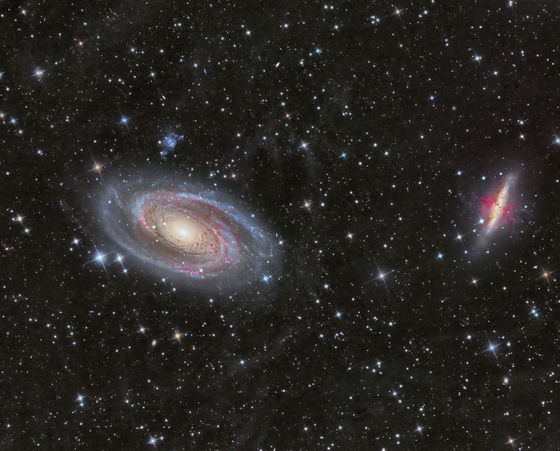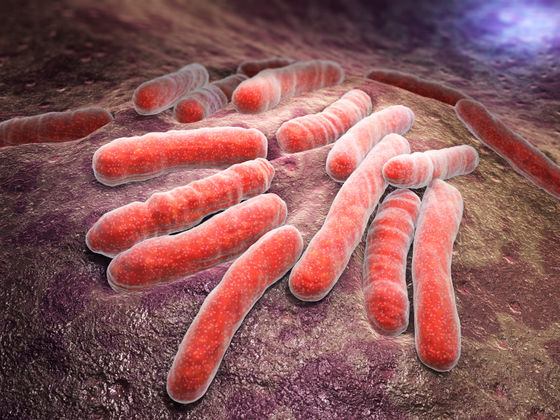What is the result of asking five experts 'Are there aliens?'

Some experts in the
Do aliens exist? We asked five experts
https://theconversation.com/do-aliens-exist-we-asked-five-experts-161811

The Conversation asked five Australian experts about the existence of aliens and summarized the answers with 'yes' or 'no.' The result is below.
◆ Mr. Jonti Horner of the University of Southern Queensland 'Yes'
When asked if there were aliens, Horner replied, 'It's definitely yes. The real question is,'Is there aliens close enough for us to find?'' ..
Horner is confident in the existence of aliens because there are so many planets in the universe. According to Horner, previous research has shown that 'most stars have planets.' It is estimated that there are 400 billion stars in the Milky Way galaxy alone, where humans live, and if there are 5 planets in each, it is calculated that there are 2 trillion planets in the Milky Way galaxy alone.
From this, Mr. Horner said, 'Given that there are so many planets, it is unreasonable to think that the only planet with some kind of creature, including intelligent life forms with excellent technological capabilities, is the earth.' I concluded.
On the other hand, Horner said, 'Even if there are 400 highly technological civilizations in the galaxy, the Milky Way galaxy is 100,000 light-years in diameter, so each planet is on average 10,000 light-years away. You will be there. ' 'I believe in the existence of aliens, but it is extremely difficult to prove it,' he said, because it is difficult to confirm its existence by receiving signals.

◆ Steven Tingay, Institute of Radio Astronomy, Curtin University 'Yes'
'I think there are aliens, but I'm pretty daring,' said Tingay, assuming that 'the definition of the word aliens includes all kinds of extraterrestrial life, such as bacteria.' It's a claim. '
Tingay is similar to Horner in that 'there are innumerable planets in the universe' as the basis for the existence of aliens and that it is difficult to prove it.
On the other hand, Tingay points out that it is a very difficult problem to decide what to call an 'alien', keeping in mind that even the 'definition of life' is not consensus in modern science. On top of that, Tingay said, 'The definition of'life'we think is so narrow that even aliens may live according to completely different laws,' he said. He said that it is difficult to recognize each other.
◆ Helen Maynard-Casely of the Australian Nuclear Science and Technology Organization 'Yes'
'I think it's only a matter of time before we can find creatures outside the earth,' said Maynard-Casely, who studies materials outside the solar system using the phenomenon of
Maynard-Casely said, 'We know that there is a sea under the ice of Jupiter's moons Europa and Ganymede.' 'Gap' is being found more and more. '
Maynard-Casely is paying the most attention to Saturn's moon Titan. In 2020, a molecule that could be the origin of life was discovered in Titan's atmosphere and became a hot topic, and in 2026, NASA's mission 'Dragon Fly' to send landers to Titan is scheduled.
NASA Announces Saturn's Satellite Exploration Mission 'Dragon Fly' Aiming to Discover Extraterrestrial Life --GIGAZINE

From this point, Maynard-Casely said, 'I think it is more and more inevitable for us to find a'gap'where active creatures live someday. Whether or not you say hello to me is another matter. '
◆ Mr. Rebecca Allen of Swinburne University of Technology 'Yes'
'There are more than 100 billion planets in the galaxy alone, of which 6 billion can resemble the Earth, so it's almost certain that there is extraterrestrial life, but they are. It looks like us, but it doesn't look like us. '
The most prosperous on earth are microorganisms, not humans. Microorganisms are often found in harsh environments, such as near the crater of a submarine volcano, where living things were not previously thought to exist, and each time they have overturned the common wisdom of the scientific community. Allen thinks that if there are extraterrestrial life forms in the universe, they are these ' extremophiles.'

◆ Martin Van Kranendonk of the University of New South Wales 'No'
Van Kranendonk, the only negative answer among the five experts, said, 'If you answer based on purely empirical data, the answer to the question of whether there are aliens is'no'. Will be. ' However, Van Kranendonk's basic idea is similar to that of Tingay, who pointed out that the definition of life has not been defined.
Van Kranendonk pointed out that it is difficult to define extraterrestrial life based on other elements because even the definition of carbon-based life on Earth has not been defined, 'in a broader sense. The answer is 'I don't know' rather than 'No'. One day we may know if we have neighbors or if we are the only ones in the universe, or maybe we will never know. Maybe. '
Related Posts:







